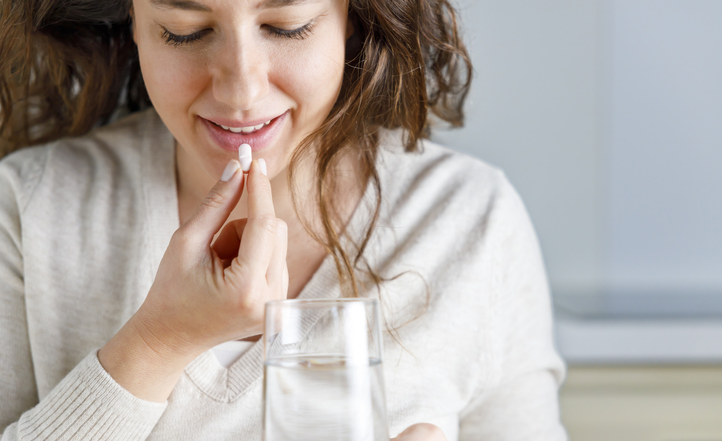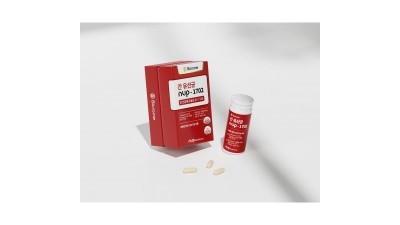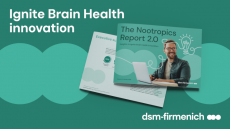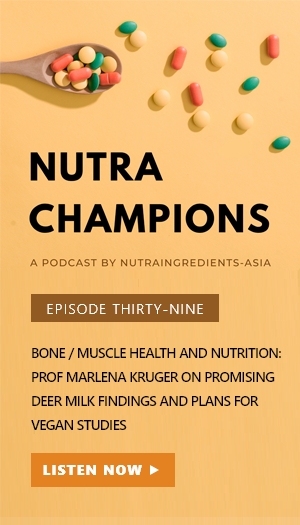Probiotics may improve sexual function in women on anti-depressants

Depression affects millions of individuals worldwide, with approximately 5% of all adults experiencing depressive disorder, according to data from the Institute of Health Metrics and Evaluation's Global Health Data Exchange. Among the myriad symptoms associated with depression, sexual dysfunction and reduced sexual desire often go overlooked, compounding the burden of the condition.
A recent study conducted in Iran has shed light on a potential new avenue for improving the quality of life for women suffering from depression. The study, a double-blind randomised clinical trial (RCT), aimed to assess the effect of oral probiotic supplementation alongside standard anti-depressant therapy compared to anti-depressant therapy alone on sexual function in women being treated with SSRIs.
Subsequently, the results revealed significant improvements in sexual function and satisfaction among women who received the probiotic supplement in addition to their antidepressant medication.
Digging into depression
Conducted by a team of medical experts at the outpatient Shahid Mofatteh clinic in Yasuj, Iran, the RCT enrolled women diagnosed with depressive disorder who were receiving treatment with anti-depressants. The study, registered at the Iranian Registry of Clinical Trials and approved by the Yasuj University of Medical Sciences Ethics Committee, recruited participants between 2023 and 2024.
The study enrolled a total of 112 women (aged 18 to 45) diagnosed with depression and randomly assigned half of them (Group B) to receive SSRIs alone. The other half (Group A) received SSRIs along with a probiotic supplement called Lactofem, which contains specific strains of beneficial bacteria — including Lactobacillus acidophilus and Bifidobacterium bifidus — and is thought to promote a healthy balance of gut flora.
Over the course of two months, participants completed various questionnaires to assess changes in their depressive disorder severity, sexual function, and sexual satisfaction. These were evaluated using standardised tools such as the Hamilton Depression Rating Scale, the Female Sexual Function Index (FSFI) and the Larson questionnaire for sexual satisfaction.
Satisfactory results
Before the intervention, there was no significant difference between the two groups in terms of sexual function or depressive symptoms. However, after eight weeks, women in Group A showed significant improvements and reported better scores across various dimensions of sexual function (including desire, arousal, lubrication, orgasm, satisfaction and pain) compared to those Group B.
Moreover, participants in Group A demonstrated a significant reduction in depressive disorder severity compared to those in Group B, indicating a synergistic effect of probiotic supplementation with anti-depressant therapy. Notably, no adverse side effects were reported in either group, suggesting the safety and tolerability of probiotic supplementation in this population.
The study's lead researcher highlighted the significance of these findings, particularly in light of the commonly reported side effects associated with anti-depressant medications, which include sexual dysfunction. As such, probiotic supplementation offers a promising adjunctive therapy to alleviate depressive symptoms and improve sexual function in women undergoing antidepressant treatment.
The researchers acknowledged certain limitations, such as not having accounted for the potential effects of psychotherapy and counselling interventions commonly used alongside prescribed treatments. It also overlooked the impact of non-surgical brain stimulation techniques on symptom presentation. Additionally, the lack of a placebo arm prevented direct attribution of observed effects to probiotic treatment.
Moreover, the relatively young age of the participants might have influenced outcomes, potentially minimising the impact of anti-depressant side effects on sexual performance. Lastly, the study lacked a post-intervention follow-up period, preventing the assessment of long-term effects or necessity of continued probiotic use. These limitations necessitate cautious interpretation of the study's findings and underscore the need for further research addressing these gaps.Bottom of Form
It also suggested that probiotic supplementation could offer a promising adjunctive treatment for depression, particularly in alleviating sexual dysfunction associated with anti-depressant use. At the same time, the researchers highlighted the importance of exploring novel approaches to managing depression and improving the overall well-being of individuals affected by this pervasive mental health condition.
The study noted that further research was needed to validate these findings and explore the underlying mechanisms by which probiotics exerted their effects on mental health and sexual function. Nonetheless, it provided a valuable contribution to the growing body of evidence supporting the potential benefits of probiotics in mental health treatment.
Source: National Center for Biotechnology Information
“Adjuvant administration of probiotic effects on sexual function in depressant women undergoing SSRIs treatment: a double-blinded randomized controlled trial”
https://doi.org/10.1186/s12888-023-05429-w
Authors: Nazir Hashemi-Mohammadabad, et al.



















